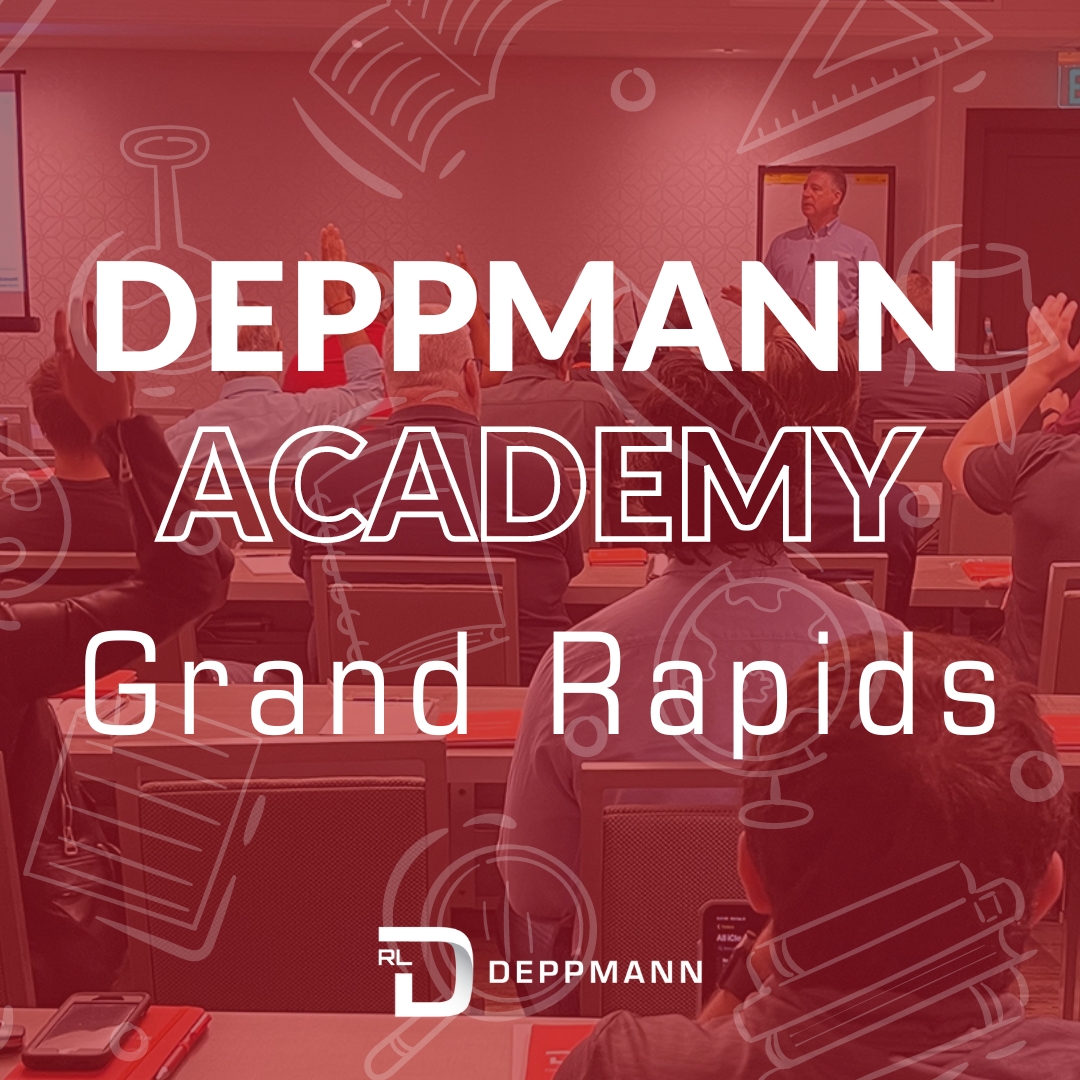Starts: October 28, 2026, 8:00 am
Ends: October 28, 2026, 5:00 pm
StoneWater Country Club
7177 Kalamazoo Ave SE Ste A
Caledonia, MI 49316
Join RL Deppmann this for the 2025 Deppmann Academy — a full-day seminar covering key topics like parallel pumping, variable frequency drives, and water quality. Led by industry experts, this event offers practical insights, hands-on demos, and networking opportunities. Attendees will earn PDH credits while learning strategies to improve system performance and stay current with industry trends.
Schedule:
Morning: 8:00am – 12:00pm
- 8:00 – 8:30: Breakfast
- 8:30 – 9:30: Presentation
- 9:30 – 9:45: Break
- 9:45 – 10:45: Presentation
- 10:45 – 11:00: Break
- 11:00 – 12:00: Presentation
Lunch: 12:00pm – 1:00pm
Afternoon: 1:00pm – 5:00pm
- 1:00 – 2:00: Presentation
- 2:00 – 2:15: Break
- 2:15 – 3:15: Presentation
- 3:15 – 3:30: Break
- 3:30 – 4:30: Presentation
- 4:30 – 5:00: Oktoberfest Themed Happy Hour
Morning Session:
The Lost Art of Parallel Pumping: Smart, Efficient, and Cost-Effective Hydronic Design
Speaker: Brad Notter & Kyle Wefing
Join Brad Notter and Kyle Wefing for an in-depth look at the lost art of parallel pumping. This session will cover HI minimum requirements, building load profiles, and system diversity, while showing how turndown strategies and example pump schedules can improve efficiency. You’ll also learn how smart pumps integrate with parallel systems to maximize performance, along with the cost savings these designs deliver—both at installation and throughout system operation.
Domestic Hot Water Recirculation Systems
Speaker: Ryan Groves
This session will cover the purpose and benefits of hot water recirculation systems, including how they improve comfort and enhance system efficiency. We’ll review key design considerations, control methods, and strategies for properly sizing new and retrofit systems. Special attention will be given to high-rise applications, where pressure zones, pump placement, and distribution present unique challenges.
Exploring Heat Exchangers: Technologies, Types, and Applications
Speaker: Mike Kennedy & Jason Winslow
Join us for an in-depth exploration of heat exchangers, where we’ll cover the fundamentals of heat transfer, including key concepts like LMTD, temperature cross, and fluid properties. We’ll walk through the various types of heat exchangers—Shell & Tube, Plate & Frame, and BPX—highlighting their construction, maintenance, and common applications. Real-world scenarios will demonstrate how to select and size the right unit based on performance, pressure drop, and cost considerations. Whether you’re designing for heating, cooling, or specialty applications like pools, this session will provide practical insights and tips to help you make informed decisions.
Afternoon Session:
From 0 to 60Hz: The Basics of Variable Frequency Drives
Speaker: Nick Tabar
This presentation provides a comprehensive introduction to Variable Frequency Drives (VFDs), beginning with how three-phase induction motors operate and why controlling frequency is key to motor speed control. It then breaks down the internal components of a VFD, covering rectification, the DC bus, and the inverter section, and explains how Pulse Width Modulation (PWM) and carrier frequency create variable AC output. The second half explores VFD applications, including constant and variable torque systems, pump and fan affinity laws, and constant power considerations. It also covers open vs. closed loop control, analog and digital signals, ramp rates, critical frequency avoidance, PID control, and the protective features built into VFDs. Additional benefits such as system stress reduction and single-phase to three-phase conversion are also highlighted, making this a well-rounded foundation for anyone working with VFDs.
F & T Steam Basics – Overview of Fundamental Concepts
Speaker: Mark Fine & Nick Tafelski
This presentation introduces the foundational elements of basic steam systems, emphasizing practical design and operational considerations. Key topics include steam safety relief valves, which are essential for protecting equipment and maintaining safe pressure levels. We also cover condensate management, highlighting the importance of promptly removing condensate to prevent water hammer and maintain system efficiency. The role of flash tanks is discussed as a method for recovering energy from discharged condensate. Additionally, we examine condensate piping, stressing proper layout and sizing to ensure smooth flow and avoid backpressure. Finally, we touch on receivers and pumps, which help manage condensate return and system balance. These core components form the backbone of a reliable and efficient steam system, and understanding their function is critical for safe and effective operation.
Practical Water Quality Testing for Safer Facilities
Speaker: Chip Bidigare & Gary Rutman
Ensuring safe, reliable water in institutional facilities requires more than routine sampling—it demands a strategic approach that links testing data to actionable decisions. This session will explore best practices for water quality testing in domestic, cooling, and closed loop systems, with a focus on protecting public health, meeting regulatory requirements, and optimizing system performance. Participants will learn about water quality parameters, how to interpret results, and physical treatment methods to mitigate hazardous conditions.

